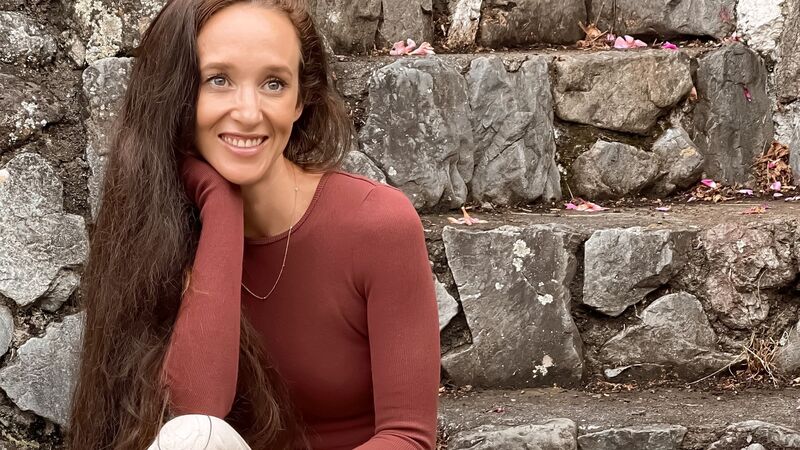You are viewing your 1 free article this month. Login to read more articles.
Dearth of a Black salesman
For one of my final school essays, I chose to analyse a whisper of a book. Upon confirming my choice, I found out that my teacher hadn’t heard of A Single Man by Christopher Isherwood and would take the night to read it. Having already planned the essay, I returned to his office nervously the following day and blurted out, “it’s my favourite book!” He frowned at me then said: “I think it’s mine now, too.” The book was a perfect choice.
I can pinpoint this as the first instance of one of my life’s motifs: becoming temporarily infatuated with anyone who reads a book at my suggestion, and then adopts that book as their favourite. But mainly it encompasses everything I love about working in sales. I present a book to someone, who takes on stock for that book and then sells the book to another person, whose life is changed in some grand or infinitesimal way. When I work across literary fiction and non-fiction, those books have the potential to overhaul everything a reader has ever thought about love, or justice or friendship. I manage accounts for natural history and religion, selling books that influence what a reader believes about themselves, the world or God.
It’s the job of my dreams, and I deserve to be here; I’ve never had imposter syndrome. I say this because as a Black woman I think it’s important to tell Black people who want to get into publishing, or are struggling within it, that you deserve to be here, even it feels as if you’re forcing yourself into a space that refuses to accommodate you. This is especially palpable in the sales sphere. To be a good salesperson, there’s an expectation of affability. You have to be passionate and personable to get retailers to take chances on titles that aren’t a sure thing. But there are moments when I wonder if I’m palatable enough not to be immediately othered by those I need on my side for the sake of the business. It’s tiring, constantly performing a version of yourself that is slightly more acquiescent, docile and unflappable, not because you don’t have these traits, but because if any of them wane, you’re seen as cold, unkind, even “uppity”, instead of fallible and human. Within publishing houses I have shrugged off casual racism: being told I don’t “sound Black”, the surprise at the books I read and love, being told that I’m “white on paper” (which, as I didn’t attend a posh school or university, I deem to mean that I have a non-Black-sounding name and a double-barrelled last name). This is offensive, but I used it to my advantage—embarrassingly, strategically—in my first year in publishing, trying to forge a kinship with the people I worked with, terrified I would be shunned if they knew how “Black” I actually am, how working-class and uneducated and utterly out of my depth.
This sentiment stems from a few experiences. For instance, I vividly remember being told by a senior member of staff that a Black visitor to the office was in fact a well-known author. They speculated that the reason I couldn’t recognise them was intentional—suggesting that anonymity, or invisibility, is more digestible than Blackness is for readers when it’s not explicit or self-serving.
A hard sell
More broadly, in retail there are a limited number of big players, and their goal is to guarantee the sale of large numbers of books, not to take a chance on Black authors without existing track records. Due to a combination of biases, expectations and trends, Black authors are usually writers of literary fiction (usually less lucrative than commercial fiction) or the non-fiction genre of anti-racism books. I often think about a quote by a white bookseller in Spread the Word’s Rethinking ‘Diversity’ in Publishing report: “We’re a business, so people aren’t supposed to go off-piste too often.”
It’s an honest statement, but I can’t help but think about myself and my loved ones as being “off-piste”; dangerous ground that others are warned against. I eagerly await the time where Black authors can just be authors and whoever else they are, without it being a personal, professional or monetary risk.
Of course, I am lucky to work with an amazing team of like-minded people who are committed to moving the industry forward, but there are still moments of discomfort within publishing as a whole, and the legacy of racism still infiltrates the unseen corners of my life. In the way that I still introduce myself to a bookseller immediately on entering a bookshop, a remnant of being accused as a teen of stealing or intending to steal. In the way I turn phrases over in my head, wondering if it was racist or merely ignorant, and when there will be another choice. In the meantime, I give a thousand-watt smile that I don’t always mean the first time but always mean the second, because I believe that people are mostly good, and that things are changing (things are changing!), and that books are tiny, flammable miracles I can barely believe.
Rochelle Dowden-Lord is the sales executive for Fourth Estate and William Collins, imprints of HarperCollins, managing the natural history and religious accounts. She is a host of the book and pop culture podcast “Main Characters”. You can find her on Twitter at @rochdowdenlord









